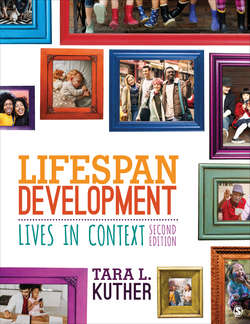Читать книгу Lifespan Development - Tara L. Kuther - Страница 122
На сайте Литреса книга снята с продажи.
What Do You Think?
Оглавление1 In your view, how important are genetic contributors to development?
2 If some genes may be protective in particular contexts, should scientists learn how to turn them on? Why or why not? What about genes that may be harmful in particular contexts?
Sometimes mutations are beneficial. This is especially true if the mutation is induced by stressors in the environment and provides an adaptive advantage to the individual. For example, the sickle cell gene is a mutation that originated in areas where malaria is widespread, such as Africa (Ware, de Montalembert, Tshilolo, & Abboud, 2017).
Children who inherited a single sickle cell allele were more resistant to malarial infection and more likely to survive and pass it along to their offspring (Croke et al., 2017; Gong, Parikh, Rosenthal, & Greenhouse, 2013). The sickle cell gene is not helpful in places of the world where malaria is not a risk. The frequency of the gene is decreasing in areas of the world where malaria is uncommon. For example, only 8% of African Americans are carriers, compared with as much as 30% of Black Africans in some African countries (Maakaron & Taher, 2012). Therefore, the developmental implications of genotypes—and mutations—are context specific, posing benefits in some contexts and risks in others, as illustrated in the Lives in Context feature.
